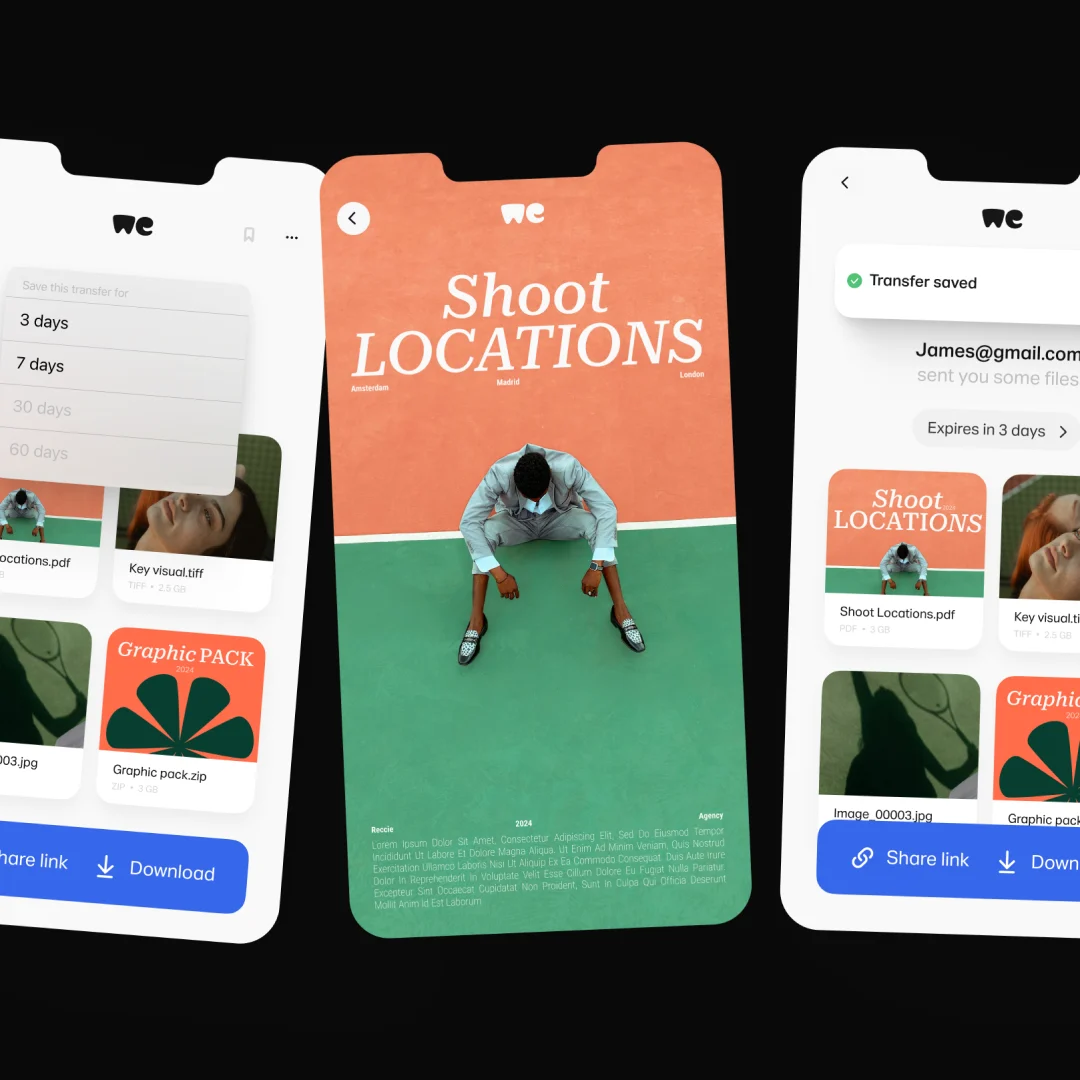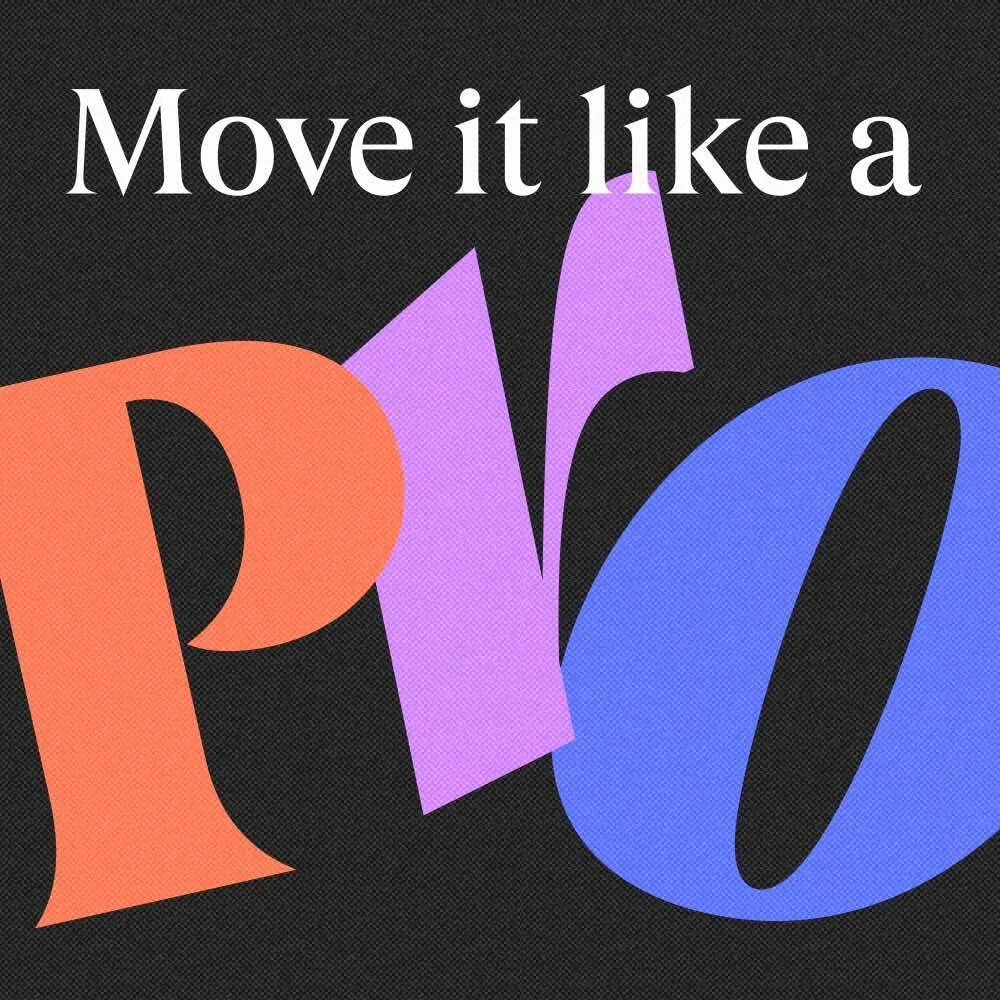When sustainability is measurable, it's a game changer
The SDG Lions Grand Prix winner as a force for transparency in the world of consumption

Imagine if an idea that ended up helping to save the planet emerged not from a science conference or gathering of global policymakers, but a festival for advertising creatives? Well, maybe it just has.
Row back a year and such an outcome didn’t look remotely possible as, in a devastating blow for the advertising industry, Cannes LIONS 2020 was canned—yet another victim of the pandemic. In the face of adversity, WeTransfer and LIONS joined forces in their pursuit to bring a sense of togetherness across the global creative community while keeping them inspired with the best creative work.
In its 2021 return iteration, we were determined to amplify the cheers for the winners - and as a statement of how we see creative thinking not just as at the heart of good advertising but as integral to tackling the world’s biggest problems. And those problems don’t come much bigger than climate change.
The responsible roar
If you’ve been following our B Corp journey and the road to carbon neutrality, you know we take this stuff seriously. Hence why we decided to be involved in the Sustainable Development Goals award, which acknowledges the most inspired environmental creative solutions. The original 2020 event had already attracted the widest entrants field the competition had ever seen. And, of course, postponement meant the 2021 event became bigger still, with two years worth of inspiring work being judged in one; in this category alone, there were an admirable 736 entries from around the world.
Think about it for a second; 736 teams going above and beyond to turn the tide on global issues. That’s what I call using creativity for good.
The SDG Lions were first introduced in 2018, intended to spotlight the necessity for creative collaboration and eco-innovation in addressing and overcoming the myriad threats facing our planet. Some 20 Lions were awarded: 3 Gold, 4 Silver, and 12 Bronze - all worth checking out. And, in a wonderful piece of symbolism, the Lions trophy itself, produced in partnership with Parley for the Oceans, is made from upcycled polluting plastic recovered from our seas.
Who took home this piece of plastic? The Grand Prix winner was The 2030 Calculator, created by the Doconomy and FARM team from Sweden. Not scientists but creatives with an eye for design, the brains for innovation, and a heart for sustainability. They could very well be the carbon emissions game-changers.
Their stunningly simple idea allows companies of all sizes the research tool-set needed to calculate exactly the carbon emissions cost of every single item they produce and bring to market - a pair of jeans, say. It makes it as simple to put the carbon emissions cost of those jeans on their label as it is to put the calorie count on the packaging of a sandwich. Consumers can then make informed, data-empowered purchasing choices - important when the production (especially due to energy use) and transportation of one pair of jeans can generate as much as four times more carbon than another.

I spoke to The Calculator’s co-creator and ECD, Johan Pihl, who told me how ambitious Doconomy is for the impact it can now have: “At Doconomy, we have a big goal, a very big goal: future-proofing life on earth.” And Johan explained that the idea of a game changer coming from the commercial rather than science sector isn’t counterintuitive at all - because so much in the battle for sustainability depends on motivating change of human behavior.
“I believe in the power of communication and its ability to change consumer perception and ultimately behavior,” he told me. “And I put my trust in consumers too. The ultimate aim of The 2030 Calculator is a world standard of data and transparency on product-level carbon impact that empowers consumers to make climate-smart choices that move us all towards a more sustainable lifestyle.
Even when facing the alarming threat of climate change, I think there are many reasons to feel optimistic. The issue of our environmental impact will increasingly influence all commercial activities on the planet. And the key is transparency. There is no turning back once you open the factory doors, allowing full transparency around the production process. In the end, the brands that see this as an opportunity will prevail and the ones that see it as a threat will perish.”
Something that really resonated with me that Johan said is that we’re in this together. There are no competitors in fighting climate change.
“All brands are steadily moving towards sustainability. They are not resisting, they all want to make this necessary shift. But the problem of climate change is so enormously big and so difficult to solve.“
There is no room for rivalry - we're all in this together, and brands need to be willing to collaborate. And we do see this collaborative effort finally happening now, and that’s very, very positive.
The experts agree that with great power comes great responsibility. In the words of our Chief Advertising Officer, Natascha Chamuleau: “I’m really excited to see more clients approaching us because they’re learning about our B Corp certification, and how we aim to find the right balance between people, planet, and profit. Advertising is designed to influence behavior, and there’s a real shift in mindset to use that influence for good. Supporting the work Johan and Mathias are doing in the space of consumer education is an important step in the right direction.”
Jury President, Eduardo Maruri, VP Global of Grey Worldwide, said: “I think the Doctonomy Calculator has the potential to actually change the world. If we can manage to put a calculator label in a product to help consumers select the ones with less footprint, we can change the world and solve climate change.”
Cyrill Gutsch, founder & CEO of Parley for the Oceans couldn’t agree more: “We, the creative community, have put our skills in the service of exploitative and destructive business practices for too long. It’s time to step out of our self-created, fictional bubble and own the responsibility for the reality we are forming through our work, every day. It’s the creatives who can own this challenge, to live and act with the understanding that it’s our own future, our own survival at stake.”
Those are some big expectations but I feel Doconomy is up for the challenge after talking to Johan. Or as he likes to put it:
“Innovation got us into this mess, and innovation can get us out”
If you’re part of an organization interested in calculating the carbon footprint of your (soon to be) product, feel free to reach out to him.
Related articles
 Save for now. Get to it later
Save for now. Get to it laterNever stress about expired links again. Discover how WeTransfer's ‘save for later’ feature lets you store and access important files whenever you need them.
 Unleashing our next era of growth, with Bending Spoons
Unleashing our next era of growth, with Bending SpoonsWeTransfer joins the Bending Spoons portfolio of digital businesses
 Share big files from the same place you create them
Share big files from the same place you create themWeTransfer Teams Up with Adobe to streamline content sharing with new add-on for Adobe Express
 Being the best we can B
Being the best we can BHow our business is helping us make an impact—and why we’re letting the world know all about it.
 Behind the scenes with WeTransfer and Tribeca Festival
Behind the scenes with WeTransfer and Tribeca FestivalWhy we partnered with the iconic film festival for our latest short film launch
 Get Partner Perks with WeTransfer: Unlocking Creativity Together
Get Partner Perks with WeTransfer: Unlocking Creativity TogetherNew partner benefits and discounts exclusively for WeTransfer Pro subscribers
 Set a price, share your work, and get paid with WeTransfer
Set a price, share your work, and get paid with WeTransferIntroducing a simpler way to get paid for client work and make money from your creativity
 “Move it like a Pro” campaign highlights simple tools that help creators
“Move it like a Pro” campaign highlights simple tools that help creatorsA behind the scenes look into WeTransfer's latest brand campaign
 New Rules: Inspiring creatives at a difficult time
New Rules: Inspiring creatives at a difficult timeWe’ve launched a guide to help photographers navigate an industry in flux
 Creating a world? Join our new research project
Creating a world? Join our new research projectSubmit your projects to get published in our new memo, take part in our research and get paid for doing it.
 Making a difference together
Making a difference togetherFive ways we balance people, planet and profit
 Everyone’s Business: Shaping a More Responsible Advertising Future
Everyone’s Business: Shaping a More Responsible Advertising FutureAs the industry moves forward in its effort towards responsible advertising, let’s discuss what it is, what we’ve been doing so far, and what we can continue doing together.
 Our security standard
Our security standardWeTransfer achieved ISO 27001 certification
 Studio Lab 2022: Snapping back at unconscious bias
Studio Lab 2022: Snapping back at unconscious biasTake a conscious trip into awareness with Snap Who. A psychedelic, mind-expanding experience from WeTransfer’s creative studio.
 Designing Ads for All
Designing Ads for AllWeTransfer Advertising is committed to accessibility. Here’s why.
 Indigenous knowledge is crucial to the future of humanity
Indigenous knowledge is crucial to the future of humanityThe O futuro é indígena (the Future is Indigenous) project serves to remind people about the critical importance of indigenous communities across Brazil
 Talk to the Moon: one giant leap for WeTransfer
Talk to the Moon: one giant leap for WeTransferThe story of Talk to the Moon: a wonderfully strange AI experience, brought to life on WeTransfer
 Why we’re giving everyone at WeTransfer Fridays off over the summer
Why we’re giving everyone at WeTransfer Fridays off over the summerIntroducing WeTransfer Time Off: summer edition, with every full Friday during July and August granted as a day off, without changing our work patterns Monday to Thursday or adjusting compensation and benefits
 Season 4 roundup - Influence Podcast
Season 4 roundup - Influence PodcastDuring this season we talk to UK-based fashion designer Harris Reed and Oscar-winning actor, writer, producer and musician Riz Ahmed, plus more
 Season 3 roundup - Influence Podcast
Season 3 roundup - Influence PodcastThroughout this season Damian chats to Ben & Jerry's co-founder Jerry Greenfield and explores what happened behind closed doors at Cambridge Analytica, plus much more
 Season 2 roundup - Influence Podcast
Season 2 roundup - Influence PodcastDuring this season we explore the complexity of being black in America, non verbal communication, plus more
 Season 1 roundup - Influence Podcast
Season 1 roundup - Influence Podcastinfluence-podcast-by-wetransfer-season-1
 B-eing better is no longer optional
B-eing better is no longer optionalAs we publish our second Responsible Business Report, we look at what we have accomplished so far and where we are heading, so we can keep striving to make an even bigger impact
 Behind the B: Storytelling with WePresent
Behind the B: Storytelling with WePresentWePresent features unexpected stories about creativity from all over the world. Here’s how we ensure we’re being as representative, supportive and authentic as possible
 Behind the B: celebrating B Corp month
Behind the B: celebrating B Corp monthIn honor of B Lab’s B Corp month we’re inviting you Behind the B (and, er, the We) to find out what keeps us motivated to be a better, more sustainable business - spoiler alert, it’s you.
 Better Business: what 2021 taught us
Better Business: what 2021 taught usWeTransfer has been doing good for over a decade and a B Corp for more than a year now and here’s what we’ve learned along the way
 Better together
Better togetherThe Climate Emergency is everyone’s problem
 Leading the way
Leading the wayOur first responsible business report launches today
 We’re launching our next act
We’re launching our next actSupporting the next generation of creatives
 Meet Holley M. Kholi-Murchison, Our New Creative Researcher-in-Residence
Meet Holley M. Kholi-Murchison, Our New Creative Researcher-in-ResidenceThe social practice artist sheds light on how our first creative residency came to life
